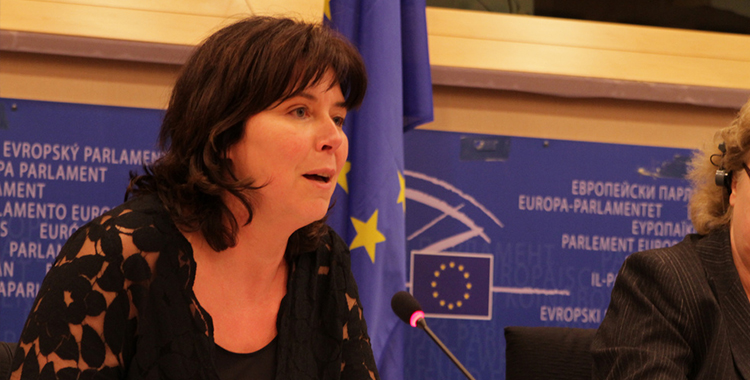Jutta Steinruck, German politician and member of the Committee on Employment and Social Affairs, is a member of the European Parliament since 2009 for the S&D political group.
Why did you decide to go into politics?
I have never planned to become a professional politician. In the place where I come from, we have always had a lot of social problems, with a high percentage of migrants. I soon understood that if I really wanted to change something, I could only do that by being politically involved.
And why Europe? I focused on social issues and employment in my political work, and I realized that we don’t have a German labour market anymore, we have a European labour market.
I wanted to be part of smoothing this transition from a national labour market into a European labour market, to prevent wage and social dumping and improve the living conditions of people.
How can we foster SMEs in Europe?
UNITEE, and its German association in Rhineland Palatinate, are signs of how naturally people with an immigrant background, who live and work in Europe, fully participate in society, for example through starting their own businesses.
Because it is the middle class, the SMEs, that are the pillars of our economic system. To facilitate business start-ups and business development, political decisions are required, for example Microcredits and low-interest loans as well as information and the reduction of bureaucracy. To ensure the creation of the right general framework is a key element.
The EU offers many programmes that support SMEs.
On a national level, the coming minimum wage in Germany will naturally impact some companies negatively. However the minimum wage disburdens the public as a whole. People then can live of their wages, they will have money to consume which in turn will secure jobs. This will equal less expenditures for local authorities and the social welfare systems.
Of course, there must be a compensatory mechanism, as a strong rapid rise in wages is a burden for companies. But in the end, the benefits for the general public and self-esteem of the individual are by far greater and more important.
What is the way forward for the EU, more or less Europe?
Both!
The European Union is of great benefit for all countries in Europe. It created lasting peace. No Member State, including Germany, can keep up with global competition on its own. Only with a common internal market, as a united Europe, we are strong.
If we would, as the Euro-skeptics suggest, go back to the nation-states, where each member state is responsible only for itself, we would destroy our future.
In Germany 2/3 of our products, services and goods are exported to other European countries. We live of this, these are our jobs, the economic success of our companies, our tax revenues.
Imagine a Europe as it used to be, with borders, customs, different currencies…- the EU made our economy competitive.
But even more important than the economy is the peaceful coexistence of peoples. We avoid war and conflicts.
We have to explain to people how the EU works, so that their confidence in Europe is restored. Sometimes the media comments very briefly on the decisions made by the head of states, and the people cannot understand what is actually happening.
Europe is not the problem. The problem is that the Parliament has far too few rights, although it is the only democratically elected body at EU level. We cannot initiate our own laws, we rely on the Commission for that, and have to bargain with the Council.
Europe needs to focus on solving its major problems. The Parliament alone cannot do that, the national governments have to pull their weight, and cease to focus on their national interest.
In your opinion, what topics will be most relevant to citizens in the next EU elections?
People expect us to stop discussing and instead finally act and end this crisis. For years, there have been summits and press conferences about what should be done, and for years nothing has changed.
Those responsible for the crisis have to be involved more in solving it; the priorities are the regulation of financial markets and a financial transaction tax.
We need to build an economic base in all countries, and to attract investment, to get the economy back on track.
Germany received the support of other countries after the Second World War, when it had no economic basis. Other countries financially supported us through the Marshall Plan. And it worked! Germany now is economically very successful, a success story rooted in the solidarity among people.
As socialists, we want to achieve this solidarity in Europe again.
With 50 percent youth unemployment, people have no perspective. Naturally, they are looking for a scapegoat. They want answers to questions such as: How can I create my future? How do I find a job? Will I have the chance to feed a family?
The Strategy to Combat Youth Unemployment is only a small element in the fight against this situation. We need to create good jobs in Europe to regulate financial markets: Member States must do their homework, and we need to look far into the future and invest in technology, the core of tomorrow’s economy.
What are your personal priorities during the election campaign?
My focus will be on employment policy and good jobs: the EU must provide more than just non-binding recommendations concerning the labour market. The Commission and majorities in the European Parliament focus on the competitiveness and economic performance. However, an economy purely based on competition creates inequalities and problems concerning the quality of work.
One of my personal objectives is to put the focus back on the people. Competition is good and essential, but people are more important.

Leave a Reply